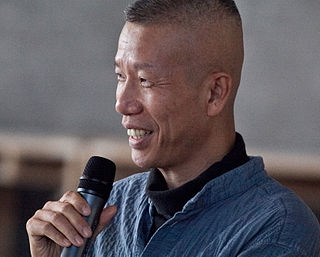A Quote by Jules Verne
Nature's creative power is far beyond man's instinct of destruction.
Quote Topics
Related Quotes
To find anything comparable with our forthcoming ventures into space, we must go back far beyond Columbus, far beyond Odysseus-far, indeed, beyond the first ape-man. We must contemplate the moment, now irrevocably lost in the mists of time, when the ancestor off all of us came crawling out of the sea.
There is a scientific explanation of healings by the power of Mind over matter which demonstrates that such healings are not miracles, but are within Nature's law which cannot be transcended by either man or God. The Fact that they were beyond man's comprehension did not prove that they were supernatural - for an airplane or radio would have been thought supernatural to dwellers in places far removed even one generation ago.
For me it's really important that the work here displays an aesthetic of decay along with the sunken boat with the broken ceramic pieces. They form a unity in showing the power of destruction, the beauty of destruction, whether it's from nature - because the boat has sunk - or through other forces. It's really the beauty of decay and death that holds a power here.
From the living fountain of instinct flows everything that is creative; hence the unconscious is not merely conditioned by history, but is the very source of the creative impulse. It is like nature herself - prodigiously conservative, and yet transcending her own historical conditions in her acts of creation.






































